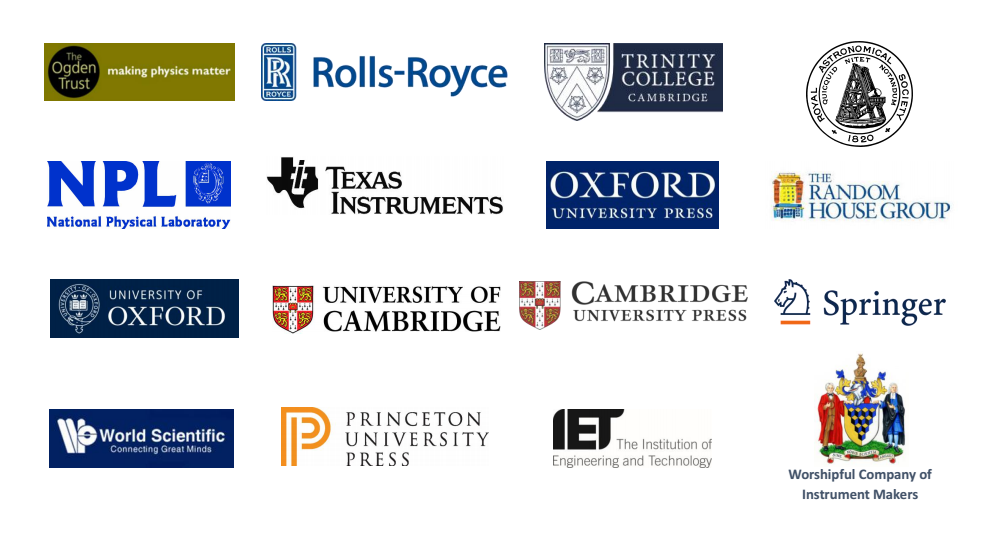British Physics Olympiad Camp
British Physics Olympic gold medal coach theme
British training camp
Physical thinking training and experimental operation with the characteristics of Oxford University
Exchange with the national excellent physics elite
Date: 22nd - 25th, July 2023
Introduction
British Physics Olympiad Camp (China) Invitation
Dear student,
We would like to extend our sincere invitation to the top ranked students in BPhO round 1 to participate in our seventh BPhO Physics Camp in China, held from July 22nd to 25th.
The British Physics Olympiad is a charitable trust overseen by a committee of trustees. It was initiated in 1979,and has been used as a qualifier for selection into the UK Physics Team for the International Physics Olympiad from 1983. The BPhO is hosted by University of Oxford. ASDAN China and the British Physics Olympiad committee have been working together to bring the competition to China since 2016.
The Physics Camp aims to develop future physicists by offering different experiment-based learning opportunities. These activities will increase students' interest for exploring physics further. The camp will help improve their key skills in learning physics, such as observation and logical thinking skills. Head coaches from the UK will bring in the most updated learning materials and teaching methods to China. Most are experienced physics professors from top universities such as the University of Cambridge and the University of Oxford, as well as head teachers from top high schools.
Congratulations to all the students selected. We believe you would have a great and unique learning experience during the camp.
The British Physics Olympiad committee
ASDAN China
February 2023
Supported Organizations

Rules
Date
Date: 22nd - 25th, July 2023
Location
Location: Shanghai, China
Participants
80 high performing students in 2022 BPhO Round 1
Teaching module
- Dynamics Problem solving: based on our previous experience, students do not want to hear about solving problems or be told what is good for them, but would rather be engaged in doing it, discussing the ideas and trying to get ahead of the others. What does work is problem solving sessions, some brief discussion and then more problems. They like succeeding in something that is hard. We have sets of problems that they can be doing as we walk around observing and chatting with them, along with a few other helpers, discuss progress, suggest ideas and how to approach the problems. Dynamics is good because it engages them without a lot of introduction, it is very important for getting into universities which have tests and interviews as it is the standard material for questions at interview, and there is plenty of scope for making the questions easier or harder with the same physics content.
- Practical: Professor would want a circus of very small experiments( cartesian diver, mu metal rod, interference effects, etc. ) which students spend just a few minutes before moving on, so that students get through six or eight, observing and discussing what is going on. Then two or three proper experiments which have been labelled Stefan and the Conical pendulum. Stefan uses a torch bulb to obtain the radiation power law, that the power radiated by a hot body is proportional to the fourth power of the absolute temperature (i.e. in kelvin).Then maybe another experiment. These are not quite the shorter experiments they would do at school. Rather more analysis to construct a model (conical pendulum) and test the data, or have a model and see if the parametrisation will fit the data (Stefan).
- Estimations: Estimations is what a physicist will do when a complicated calculation is impossible due to the technicalities of the idea. For example, what is the power of the human heart (about 1 watt), what is the magnification power needed for a telescope to be able to see a near star like Alpha Centauri, similar in power output to the Sun, in the sky during daytime.Estimate the magnification of the light intensity on the retina of a point light source seen with the eye. These require physics understanding and knowledge of diffraction, optics, and assorted topics t be able to answer. Dimensional analysis is a physics tool which one can use when there is a knowledge of the physics involved.
Agenda (TBD)
British Physics Olympiad Camp China<Agenda>
| Date | Activity | Time |
|---|---|---|
| 21 July | Sign-up | 14:00-18:00 |
| 22 July | Opening Session Lecture |
9:00-12:00 |
| Experiment Discussion |
14:00-18:00 | |
| 23 July | Lecture Team Task |
9:00-12:00 |
| Experiment Discussion |
14:00-18:00 | |
| 24 July | Lecture Team Task |
9:00-12:00 |
| Experiment Oxbridge Application |
14:00-18:00 | |
| 25 July | Lecture Team Task |
9:00-12:00 |
| Discussion Closing Ceremony |
14:00-18:00 |
Teacher introduction
Dr Anson Cheung was educated at St Paul’s School London, one of the leading UK academic schools. Whilst there he was a member of the UK Physics Olympiad team at the International Physics Olympiad. He attended Trinity College Cambridge as an undergraduate, studying Natural Sciences, going on to complete a PhD at the Cavendish Laboratory on the quantum behaviour of matter at low temperatures, and being awarded a prestigious Fellowship of Trinity College for his work. After 12 years at Cambridge he decided to go into teaching, in many ways as challenging a task as research, ensuring that the skills and knowledge gained over many years could be passed on to a younger generation of very able students.
He has a great deal of experience at presenting difficult concepts at a level that can be grasped by less experienced students, and is able to show methods of solving problems that maybe generalised to a wider range of examples in related fields. His work in coaching teams for the International Physics Olympiad has ensured that his experience in solving problems with the most able school students has remained at the highest level.
Keith Gibbs has taught at a range of schools in the UK in a very distinguished career. He is well known to UK teachers as the author of many books, but most notably The Resourceful Physics Teacher, containing details of over 700 experiments and demonstrations that illustrate many aspects of physics that students and teachers think they understand, but have to work very hard to explain when they see some of his examples. Resourceful Physics is the related website with over 5000 pages of ideas, challenges and supporting materials. Keith has supported teachers in developing their skills and knowledge over many years and his experience has been put to good use from Canada to Mongolia. He has given well over 200 talks to various groups (school students, PGCE students, teachers, teacher trainers and the general public) in England, Wales, Northern and Southern Ireland, Netherlands and Mongolia, including three residential physics courses for A level teachers, and six short programmes on practical physics on Canadian TV. His ideas will interest and challenge physicists and encourage them to develop their thinking in order to explain what they see.
Dr Adam Patchett graduated from the University of Liverpool with a BSc, and a PhD in Surface Science, and was subsequently involved in training undergraduate and graduate students at universities in Germany, Italy and Ireland. After joining the teaching profession Adam has had the opportunity to encourage large numbers of students to reach their potential in physics, and he has been leading physics teaching in schools in Liverpool, London and currently Stamford. Making the subject accessible, challenging and rewarding, are features of his teaching style which resonate with the UK Physics Olympiad, of which he is a part.
Graduated Cambridge BA 1973 and MA 1977, PhD 1981
Teaching Physics, Maths and technical subjects in State and Independent Schools in the UK
1984- 2012 Head of Physics, Hills Road Sixth Form College, until retirement
Also Principal examiner in Engineering Science (O-level) and Modular Physics A-level
Setter for BPhO A2 challenge; juror at 2014 International Young Physicists’ Tournament (IYPT)
1990-2001 Led exchange scheme for students at Moscow Lomonossof University (MGU)
Other interests include Voluntary Youth Work
Currently teaching part-time and involved with schools’ outreach projects at the Cavendish Laboratory, Cambridge University.
Registration
Deadline
June 3nd, 2023
Entry list
FAQ
1, If you apply to refund from the date before the 60 calendar days of the camp, no registration fee will be deducted;
2, If your application date is between 60 days and 45 days, 25% of the registration fee will be deducted;
3, If your application date is between 45 days and 30 days, 50% of the registration fee will be deducted;
4, If your application date is between 30 days and 15 days, 75% of the registration fee will be deducted;
5, After the date 15 calendar days before the camp, you will no longer be eligible and won't be able to receive a refund.






















